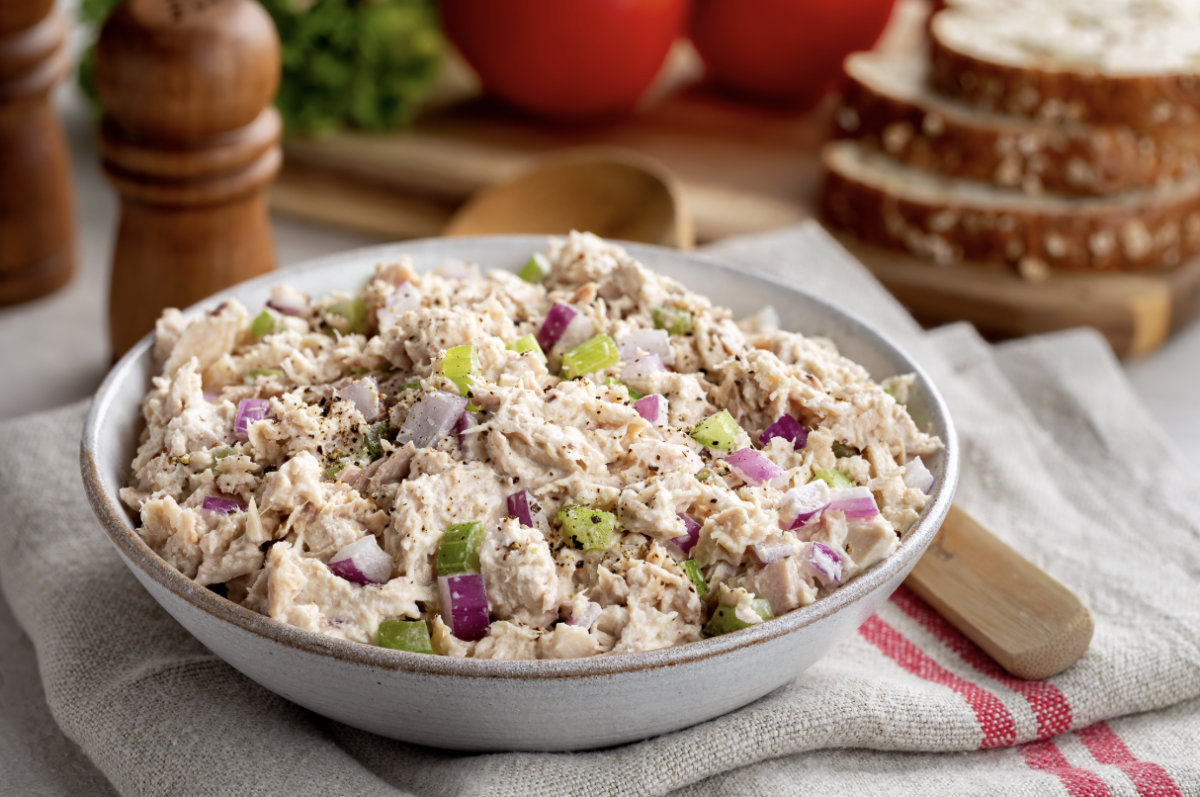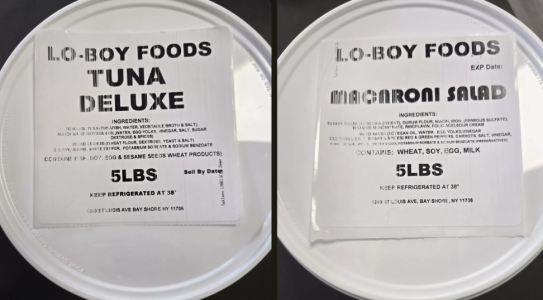
Many shoppers who recently grabbed a tub of salad from a local retailer may need to take a second look at what’s in their fridge.
A major food manufacturer has recalled two of its well-known products after discovering a contamination issue that poses a significant risk to vulnerable groups.
The warning has now been elevated to the highest classification, signaling an urgent need for caution among older adults who rely on ready-to-eat foods.
This situation has quickly become a reminder of how fast a simple grocery staple can turn into a potential health threat.
What triggered the recall
On October 15, Made Fresh Salads Inc., a New York-based company, voluntarily recalled two of its products after discovering a potential Listeria contamination risk.
The FDA followed up on November 13 with a Class I risk classification—the most urgent level, reserved for situations where there’s a “reasonable probability” that eating the product could cause serious health consequences or even death.
The recall covers two specific items, both sold in distinctive white plastic containers:
- LoBoy brand Tuna Deluxe Salad with sell-by date 10/20/2024
- LoBoy brand Macaroni Salad with sell-by date 10/20/2025
- Both products were packaged in 5-pound white plastic tubs and distributed to retail stores across New York.

Why seniors need to take this seriously
Listeria is especially harmful to people aged 65 or older, and recent outbreaks paint a sobering picture of just how dangerous this bacterium can be for the age group. Listeria infection results in approximately 1,600 cases and 260 deaths annually in the US, with seniors bearing a disproportionate burden of severe outcomes.
This year alone has seen devastating Listeria outbreaks that specifically targeted senior populations. A supplement shake outbreak killed 14 people and hospitalized 41 of 42 infected individuals, with most victims residing in nursing homes. The 2024 deli meat outbreak killed at least 10 people and hospitalized 60, while a prepared meal outbreak infected people ranging from 4 to 92 years old, with a median age of 74 years.
Understanding Listeria's danger to seniors
Listeria monocytogenes bacteria can survive and grow even in refrigerated conditions, making it particularly sneaky.
For people over 65, the infection often spreads beyond the digestive system to other parts of the body, causing invasive listeriosis.
This can lead to meningitis, blood infections, and other life-threatening complications.
Unlike younger adults who might experience mild flu-like symptoms, seniors face much higher risks of hospitalization and death.
How Listeria survives and spreads in food
Unlike many bacteria, Listeria can grow at refrigerator temperatures. As Professor Mary O’Riordan of the University of Michigan Medical School explains, “Cheeses or deli meats that are kept in cold storage for long periods in stores or at home are a place where listeria can keep growing.” That means even foods that seem safe because they’re chilled can harbor this stealthy germ.
Professor Haley F. Oliver of Purdue University adds, “Listeria monocytogenes is a common microorganism found in the natural environment, like soil. In most cases, an immunocompromised person—so young, old, pregnant, or otherwise immunocompromised—must eat contaminated food to get sick. The number of bacteria needed to cause illness and the time before symptoms appear can vary a lot.”
What to do if these recalled products are in your home
- Don’t eat them. Even if they look and smell fine, Listeria can be present without any obvious signs.
- Dispose of them safely. Seal the tub in a plastic bag and dispose of it to prevent accidental consumption.
- Clean your fridge. Wipe down any surfaces that may have come into contact with the recalled products using hot, soapy water or a disinfectant.
- Monitor your health. If you or anyone in your household starts experiencing symptoms like fever, muscle aches, or gastrointestinal distress, especially if you’re in a high-risk group, contact your healthcare provider right away.
As of November 13, the FDA reports that no illnesses have been linked to these recalled products. That’s good news, but it’s no reason to let your guard down. Listeria infections can take days or even weeks to develop, so vigilance is key.
If you have questions about the recall, you can contact Made Fresh Salads at (718) 765-0082. For general food safety questions, your local health department can also provide guidance.
Read next:
- FDA warns consumers after sushi rolls recalled in 8 states
- ADHD medication recall spreads nationwide over safety concerns
- Recall notice: SiluetaYa Tejocote product may pose health risk
Food recalls can be scary, but sharing your experiences helps everyone stay safer. Have you ever had to toss out a favorite food because of a recall? Do you have tips for keeping your kitchen safe from foodborne bugs? Or maybe you have questions about Listeria or other food safety concerns?






